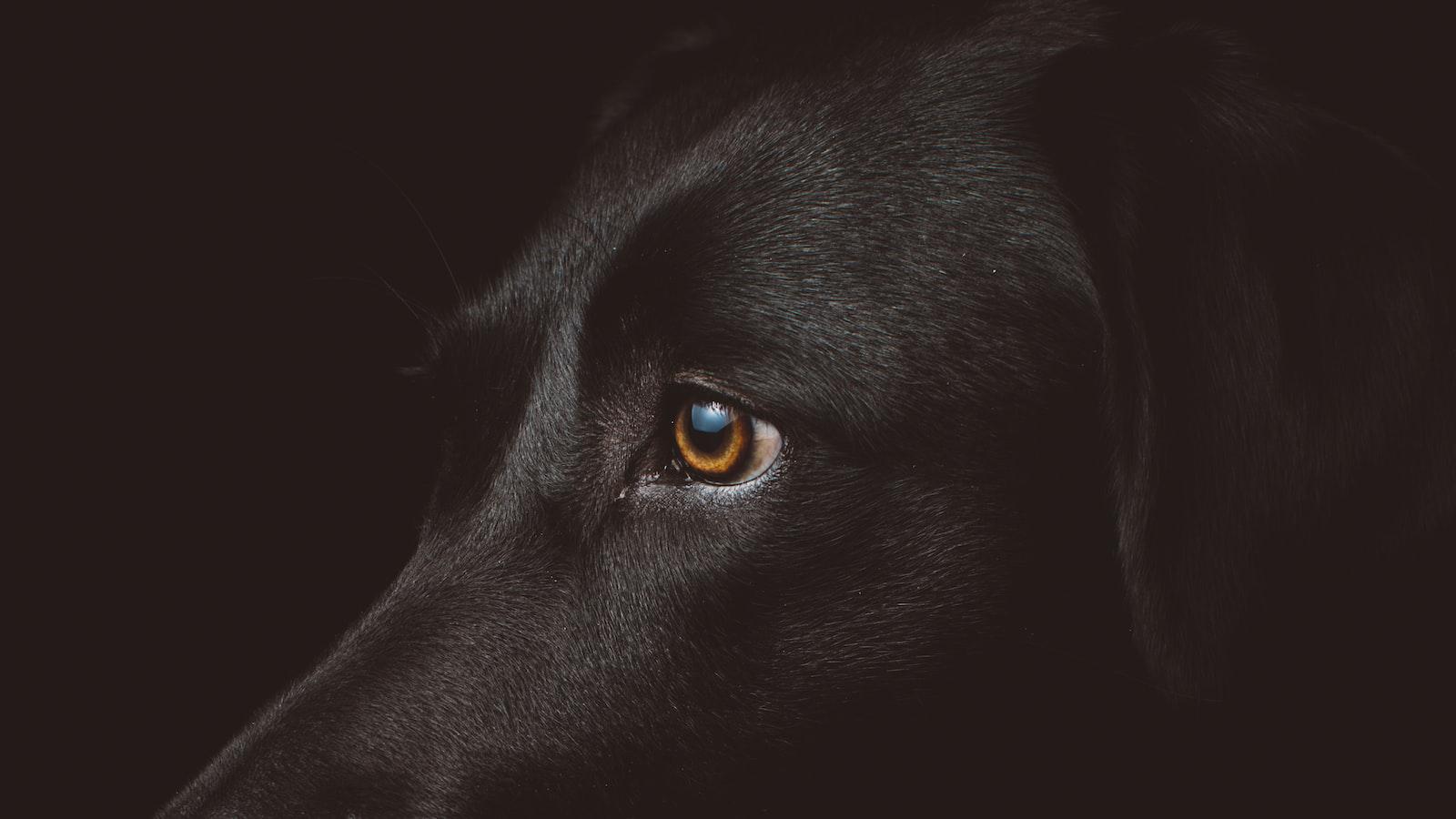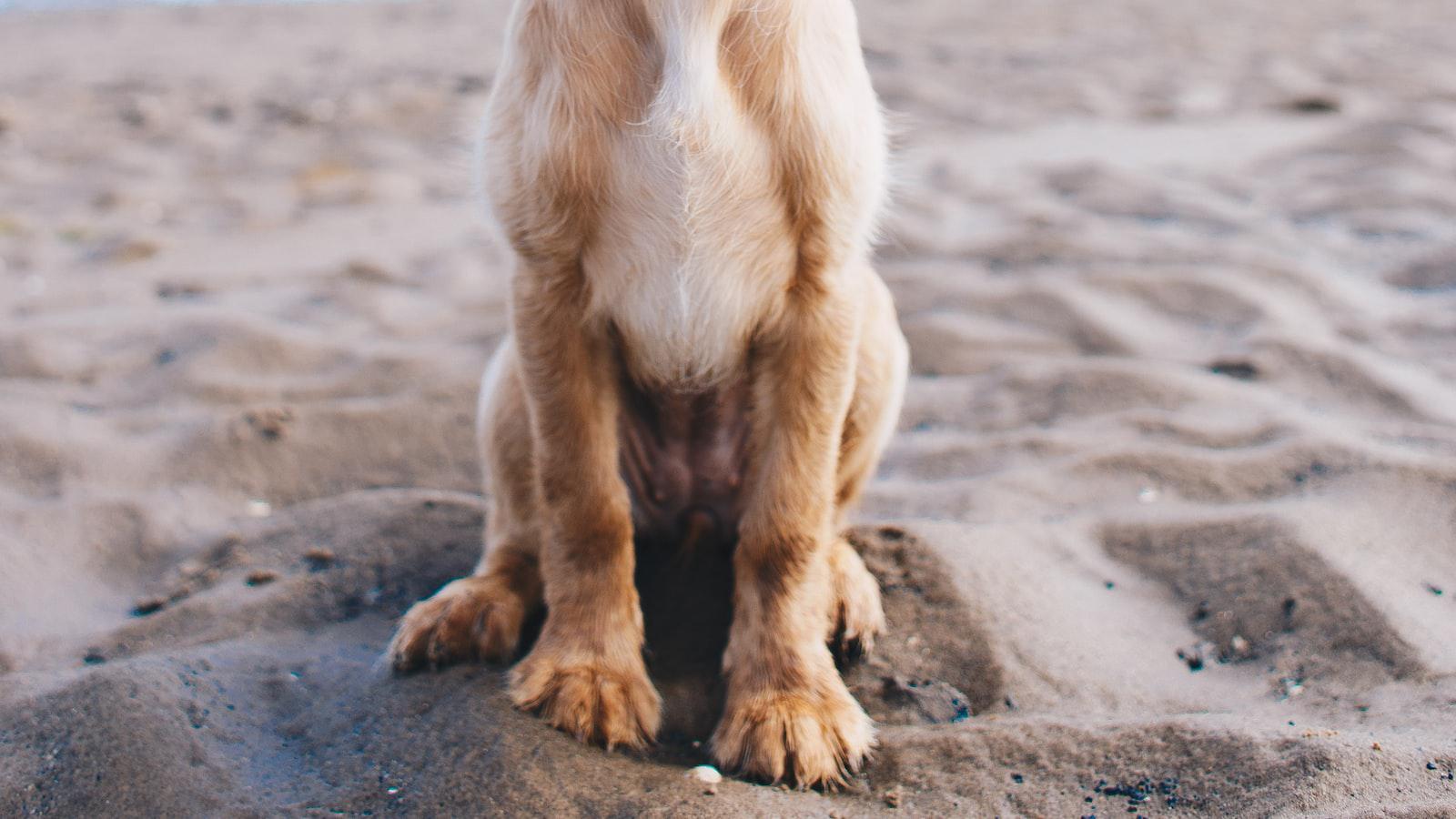Picture this: you’re sitting on your couch, engrossed in a Netflix binge or lost in a good book, when suddenly, your furry companion swoops in with an insatiable curiosity.
Their nose starts twitching, tail wagging, and before you know it, your loyal dog is hovering over that time of the month, licking away at the mysterious crimson stain.
Strange, right?
But why do our beloved canines have this peculiar fascination with period blood?
This article will explain the bloody details.
Why Do Dogs Show Interest in Period Blood Stains?
When it comes to dogs, their sense of smell is truly remarkable.
They can pick up scents that are undetectable to us humans, and this includes period blood.
It may seem strange, but many dogs are naturally drawn to the scent of menstrual blood.
So, why exactly do dogs show interest in period blood stains?
Here are some reasons why dogs lick period blood stains:
A Dog’s Keen Sense of Smell and Curiosity
Dogs have an incredibly powerful sense of smell, with over 300 million olfactory receptors in their nose (compared to our measly 6 million), they can detect even the slightest odor.
When a dog licks period blood stains, it’s not necessarily because they are attracted to the blood itself, but rather because they are intrigued by the unique scent emitted by the bodily fluids.
To a dog, the smell of menstrual blood is a fascinating puzzle that they feel compelled to investigate.
Their curiosity drives them to explore the world around them, and this includes investigating the scents of different bodily fluids.
Think of it as their way of trying to decipher the mysterious scent and understand what’s going on.
A Natural Instinct for Cleaning and Nurturing
In the wild, mother dogs often lick their puppies to clean them and stimulate their bodily functions.
This grooming behavior strengthens the bond between the mother and her offspring.
This instinctual behavior is also seen when dogs encounter blood or other bodily fluids.
Licking is their way of attempting to clean and nurture the source of the smell, as if they were attempting to tend to a wounded pack member.
While it may seem odd to us, this behavior stems from a deeply ingrained instinct to care for and protect their pack.
Seeking Comfort and Establishing a Social Hierarchy
Dogs are social animals that thrive on interaction and strong bonds within their pack.
When they come across period blood stains or other bodily fluids, it can also be a way for them to seek comfort and establish their place within the social hierarchy.
Licking is a form of communication for dogs, and by engaging in this behavior, they are asserting themselves as a caregiver and provider within their pack.
This activity can provide them with a sense of fulfillment and satisfaction, as they are fulfilling their innate roles within the group.
Mating Behavior
The smell of menstrual blood contains pheromones – chemical substances produced by the body that can trigger certain behavioral responses in animals.
These pheromones can act as signals, communicating information about the individual’s reproductive status.
Female dogs that haven’t been spayed might exhibit heightened interest in menstrual blood because they can smell the pheromones associated with ovulation and fertility.
This instinct is ingrained in them from their wild ancestors, who relied on such scents to detect reproductive partners.
Thus, your furry friend may perceive menstrual blood as a possible source of mating opportunities, triggering their inquisitiveness.
Is It Safe for Dogs to Lick Menstrual Blood?
So, you may have found yourself in a rather peculiar situation – your dog discovered a menstrual blood stain and decided to investigate it by giving it a lick.
While it’s not the most pleasant sight, it’s quite common for dogs to exhibit such behavior out of curiosity.
But you may be worried if your dog is endangering itself by licking up menstrual blood.
First and foremost, it’s essential to understand that menstrual blood itself is not toxic to dogs.
However, there are a few considerations to keep in mind.
Dogs have a natural instinct to investigate and taste everything, and menstrual blood is no exception.
If your furry friend accidentally ingests a small amount, it’s usually nothing to be overly concerned about.
It’s important, however, to note that sanitary products like tampons or pads are not safe for dogs to consume and should be kept away from their reach at all times.
Furthermore, menstrual blood can carry bacteria and other pathogens.
Therefore, it is important to ensure that your dog is up to date on their vaccinations and has regular check-ups with a veterinarian.
While menstrual blood isn’t toxic, it’s crucial to monitor your dog’s behavior after they’ve come in contact with it.
Some dogs may experience an upset stomach, vomiting, or diarrhea due to the foreign substance in their system.
If you notice any unusual symptoms or your dog starts behaving differently, it’s wise to consult with your veterinarian for further advice.
Remember, each dog is an individual, and while some may exhibit this behavior more prominently than others, it is important to provide a safe and understanding environment for them to express their natural instincts.
FAQ
Q: So, why exactly do dogs feel the need to lick period blood stains?
A: Well, dogs have an incredible sense of smell and powerful instincts, which often leads them to investigate and understand the world around them through their tongues.
When your canine companion sniffs out a period blood stain, they might be trying to identify it or gather information about their environment.
Q: Is there any reasoning behind their fascination with period blood?
A: Absolutely!
Dogs naturally have a strong instinct to lick and clean themselves and those around them.
In the wild, female dogs would often clean themselves during their heat cycle, which is when they are most fertile.
So, when they come across a period blood stain, it might trigger their innate cleaning behavior.
Q: Does this mean dogs are attracted to the smell of menstrual blood?
A: While dogs may indeed be attracted to the smell of menstrual blood, their interest is primarily driven by their instinctive urge to clean and maintain their pack’s health.
Remember to keep in mind that dogs don’t perceive smells the same way we do, and certain scents can be quite intriguing to them, regardless of our own perceptions.
Q: Is it harmful to let dogs lick menstrual blood stains?
A: Letting your dog lick menstrual blood stains on your clothing or bedding generally poses no significant health risks.
However, it’s important to take precautions, especially if you’re concerned.
Ensuring proper hygiene and cleanliness is crucial to avoid any potential issues such as skin irritation or infections.
Q: Can dogs contract any diseases from licking period blood?
A: While it’s highly unlikely for dogs to contract diseases solely from licking period blood stains, it’s essential to remember that there are certain bloodborne illnesses that can be transmitted between species.
Practicing good hygiene, such as washing your hands thoroughly after handling period products, can help mitigate any potential risks.
Q: How can we discourage this behavior if it makes us uncomfortable?
A: If you find your dog’s interest in period blood stains bothersome, feel free to redirect their attention to a different activity or toy.
Offer them positive reinforcement when they engage in alternative behaviors, ensuring they understand what is acceptable within your household.
Q: Can we prevent dogs from licking menstrual blood stains altogether?
A: Although it may be challenging to entirely prevent your dog from investigating period blood stains, you can limit their access to these areas by keeping your personal belongings out of their reach.
Additionally, using protective covers for your bedding or wearing period-specific garments may help create a barrier that keeps them uninterested.
Q: Is there anything else pet owners should be aware of regarding dogs lick menstrual blood stains?
A: The most important thing to remember is that dogs are naturally curious creatures.
Their interest in period blood stains doesn’t stem from any malicious intent or judgment.
If this behavior becomes excessive or causes concern, consulting with a veterinarian can provide you with further insight and tailored advice suited to your particular situation.
Q: Can we conclude that dogs licking period blood stains is normal?
A: Absolutely!
While it may feel a bit odd to us humans, this behavior falls within the realm of normal canine behavior.
Just like humans, dogs have their own quirks and instincts.
As long as there are no health concerns or excessive licking, you can rest easy knowing that your four-legged friend is just being their curious, inquisitive self.
Essential Insights to Remember
The next time you catch your furry companion in the act of licking up period blood, you can rest assured knowing that it’s actually a natural instinct rooted in their ancestral past.
Dogs have an incredibly keen sense of smell, and that includes detecting the odor of menstrual blood.
It’s no wonder they feel compelled to investigate and clean up the “mess.”
But don’t worry, dog owners, there’s nothing to be ashamed or embarrassed about.
Our four-legged buddies aren’t passing judgment or trying to cause discomfort; they’re just doing what they’ve done for centuries.
And hey, it could even be seen as their way of taking care of you during that time of the month.
Although no definitive scientific study points to the exact reasons behind this behavior, we’ve come to understand that dogs are driven by their powerful noses and their instinctual desire to keep their pack members clean.
It’s all part of the intricate and beautiful tapestry of their natural behaviors.
So, embrace the quirks and questions that come with dog ownership.
While it may be challenging to fully comprehend every aspect of our lovable companions, their actions often hold a deeper significance than we initially realize.











